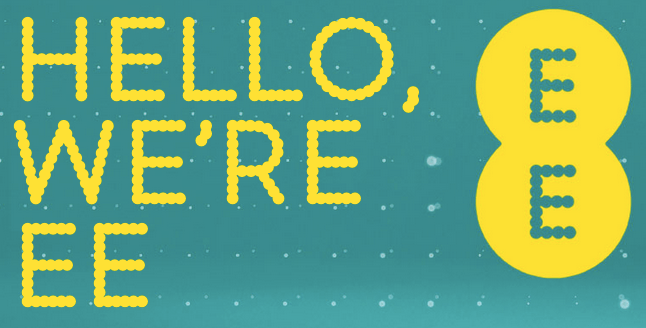Today Everything Everywhere, the JV between Orange and T-Mobile UK, unveiled some more details about its new 4G network — the first commercial LTE service for the UK market. It is going to be branded EE — a shorter name for a “faster” brand — it will be launched by Christmas, and will initially cover 20 million people, or 30% of the population of the country, with the aim for that to extend to 98% by the end of 2014. It also noted that it will be launching a new fiber broadband service, offering users connections ten times faster than the speeds of typical UK broadband today, initially to cover 11 million people.
In a presentation in London today, company noted that it will be putting a lot of marketing muscle behind EE, including converting 700 existing Orange and T-Mobile stores to EE shops, and today it also revealed the first new handsets for the service. Among them is an exclusive for the new Lumia 920, one of the new devices unveiled by Nokia and Microsoft last week, built on the Windows Phone 8 operating system.
They will include the Samsung Galaxy SIII LTE; the new Nokia Lumia 920; the smaller Nokia Lumia 820; the HTC One XL; Huawei Ascend P1 LTE ; Huawei E589 Mobile WiFi; and the Huawei E392 Mobile Broadband stick.
EE says that the first stage of the rollout, to become completed by the end of this year, will cover 16 cities.
Is this the end of Orange and T-Mobile? It looks like it may be, at least in part. For now, the EE brand is being used for the company’s new LTE services, while the other two will continue to offer the legacy 3G and 2G networks and services to customers. Combined they will cover 27 million people, the companies say.
But gradually, the company says, “Over the coming months – customers using Orange and T-Mobile will begin to see their phone signal indicator change to EE, whether they are on 3G or 2G, showing that they are on the UK’s biggest and best network. This is at no extra cost and there are no changes to their existing price plans.”
However, it also notes that Orange and T-Mobile plans “will continue to be offered to new and existing customers.” These customers will be “among the first” to have “access 4G through a move to the new EE customer brand.”
The development finally resolves how the JV was going to handle ushering both brands into the fourth generation of mobile technology: the answer is that both will disappear in the new service. Up to now, there has been a little confusion over how and whether the two older brands would continue to exist with the formation of “Everything Everywhere.”
“Today we launch a new company, a new network and a new brand for Britain,” Olaf Swantee, CEO of EE, said in a statement. “Our plans to revolutionise the UK communications market with a faster network and an exciting new brand for the digital age are built on solid investment and a simple belief that customers deserve better. We look forward to connecting the country with superfast mobile speeds in the coming weeks, months and years. And it starts today, with the announcement of our new business, our new brand and a new digital infrastructure that our company, our customers and the country can be proud of.”
The 4G service comes courtesy of a landmark deal that Everything Everywhere had struck earlier this year with the regulator Ofcom, which has given the JV permission to use some of its combined, existing spectrum to begin to roll out 4G services ahead of a full spectrum auction and rollout plan specified for the wider market. The move has been decried by competitors O2 and Vodafone and Three for giving EE an unfair advantage.
EE has committed to investing £1.5 billion over three years in the 4G upgrade.
EE says that from today, London, Bristol, Cardiff and Birmingham will start to see live testing to prepare for the commercial launch. The full 16 cities to first get the network will be London, Edinburgh, Cardiff, Belfast, Birmingham, Bristol, Derby, Glasgow, Hull, Leeds, Liverpool, Manchester, Newcastle, Nottingham, Sheffield and Southampton.
Meanwhile, the fibre broadband service, the company says, will complement the 4G mobile service. It will cover 11 will launch at the same time, with the aim to cover two thirds of UK households and businesses by the end of 2014. The company didn’t say, but it may be that the promise of building out this super fast broadband network may have sweetened the deal for EE with Ofcom, which has a wider mandate to get the UK up to speed in broadband.
